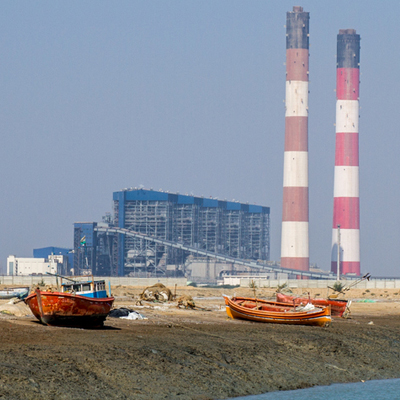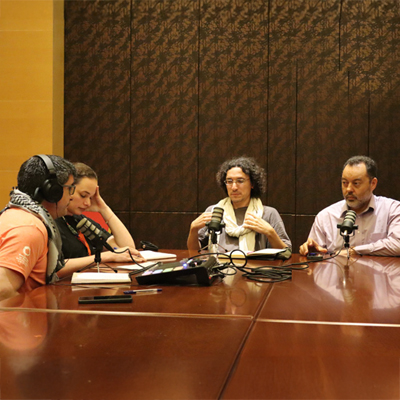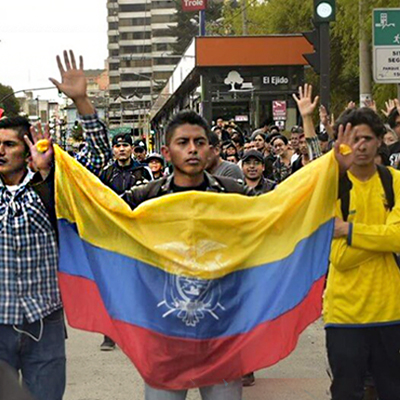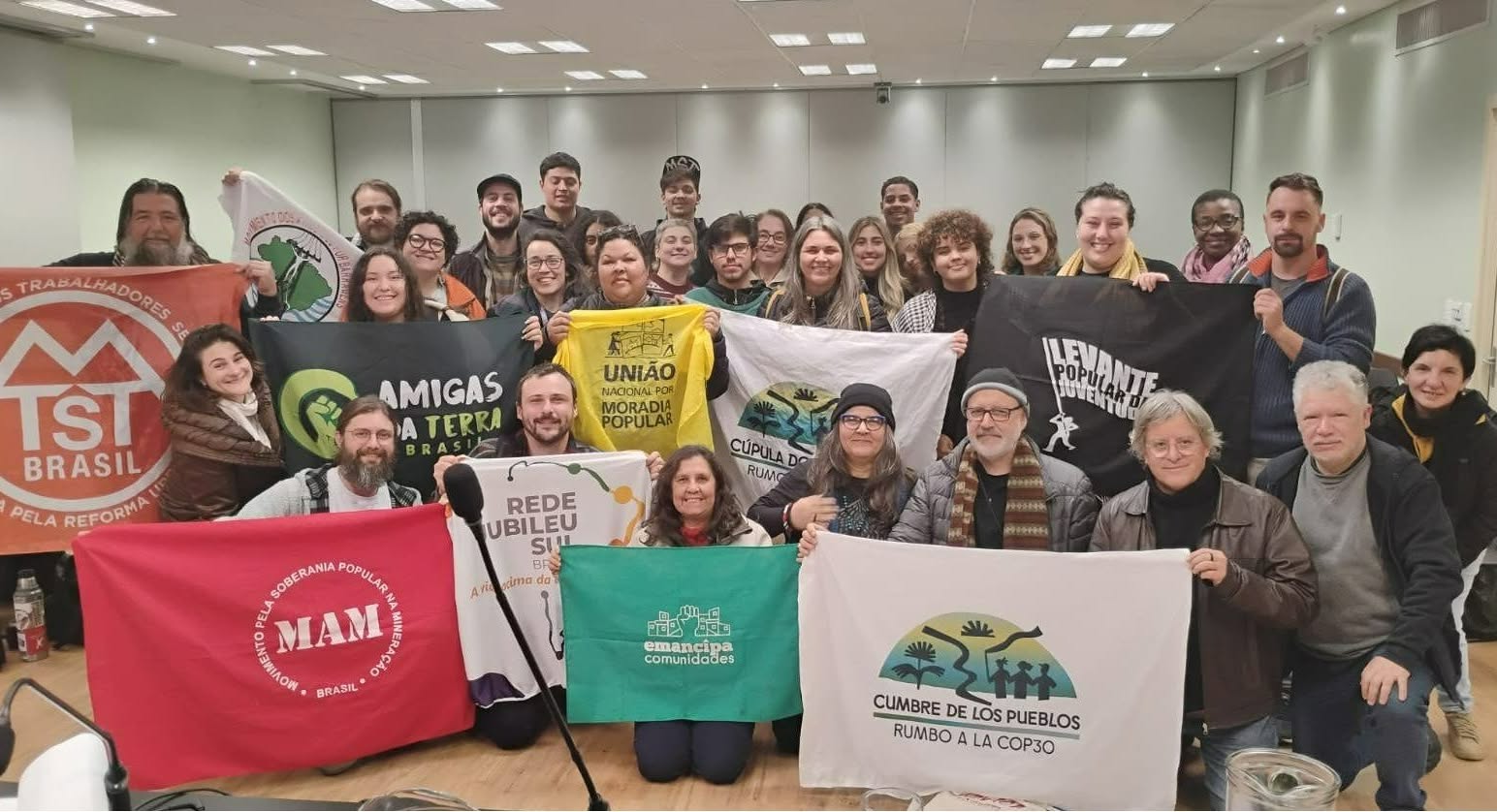Era of new challenges: “Now the ones coming and taking over your land are saying that we need to save the planet”
Interview with Jun Borras, one of the founders of La Vía Campesina International
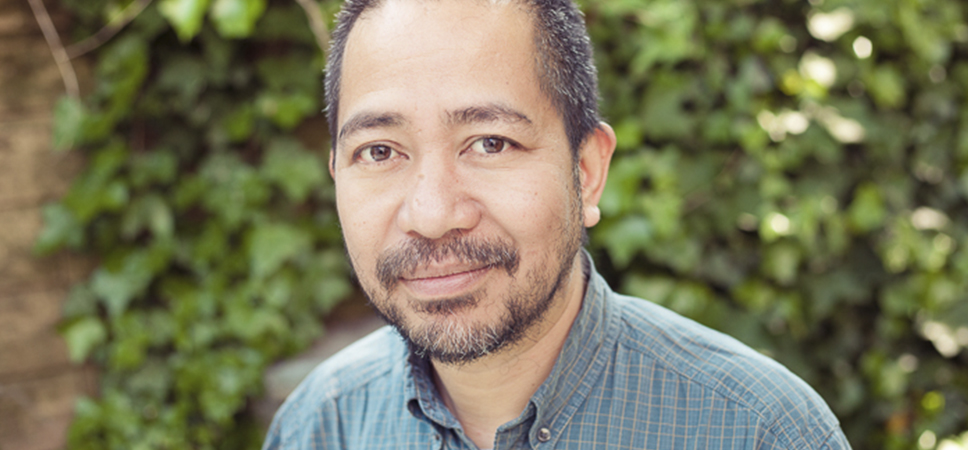 Transnational Institute de Holanda.
Transnational Institute de Holanda.
Saturnino ‘Jun’ M. Borras Jr. is a Filipino political activist and academic who has been deeply involved in rural social movements in the Philippines and internationally since the early 1980s. He was part of the core organizing team that established the international peasant movement La Vía Campesina.
Jun has written extensively on land issues and agrarian movements. This is how the Transnational Institute of the Netherlands (TNI) introduces the Filipino activist, who is member of that organization and also of the International Institute of Social Studies, based in The Hague, the Netherlands. He is also Adjunct Professor of the College of Humanities and Development Studies at China Agricultural University in Beijing.
Real World Radio presents an interview carried out with Jun late last year after a conference on just energy transition organized by Environmental Rights Action – Friends of the Earth Nigeria, in the capital city of that country, Abuja. The current challenges in the struggle for land around the world, the new actors behind the grabbing of natural resources, the “climate discourse” as an excuse for looting, the rise of the fascist right wing and the need for peoples´ unity to face it, are some of the issues addressed during the interview. We couldn´t help, as well, to ask Jun to remember the moment when La Vía Campesina was founded.
There follows a summarized text version of the interview, which starts with Jun making reference to just energy transition and its link with the dominant food system.
Jun: The global food system of the capitalist order is very industrial, chemical-based, fossil energy-based; it is a fossil capital driven global food system. And that global food system in the very minimum contributes with about 40 per cent of the global emissions every year. There is no way to have a just energy transition without dismantling that global food system and there is no way to dismantle that without, at the same time, offering an alternative system. And that is where the context of transition to agroecology kicks in.
One of the most important requirements for transition to agroecology is the assumption that people should have, and communities should have, access to natural resources, land, water, forests, seeds, that are very important ingredients for agroecology. But reality in the world today is that the majority of the people who depend on the land, and water and forestry for their livelihood don’t have effective control over those resources. And of those people remaining on the land with access, their access to these resources is constantly threatened at the moment. The point is how can you transition to agroecology in this condition?
If we don’t locate the struggle for just energy transition in the context of transition to agroecology, in a context of a system wide transition, the great danger is that the struggle for agroecology deteriorates into petty projects, an agroecological project here, an agroecological project there, and then scaling up is interpreted as stitching together just different projects. But individually and together they don´t make a dent in changing other broader social structures, meaning it doesn’t make system wide transformation of the food system. So it becomes an urgent and necessary requirement to actually dismantle the existing property system that is very much under monopoly control of a few classes and elites, that is land, water, forestry. That becomes a very complicated thing because during the past ten years, especially with the convergence of multiple crises (food, energy, climate change, finance, the environmental crisis), one result of that is that everybody, including especially powerful classes and corporations have become suddenly very interested to have control over these natural resources. Everyone now wants to have control of land, water and forests for different reasons, including climate change mitigation, for carbon sequestration, offset arrangements.
Democratizing land control in the past was very difficult. (…) But it has become even more difficult to democratize land in the era of climate change. Before, when you said land, especially land in the countryside, the only class enemies that you would identify were agribusiness corporations. United Fruit Company had so much land in Ecuador, Honduras. But these days, corporations interested in gaining a lot of land are from the car industry, such as Volkswagen, Volvo, chemical companies, including new entrepreneurs with the climate change discourse who are into carbon stocks and carbon trading. They are all interested in that. But there is also one that is emerging to be exponentially bigger and wider in terms of their scope of operation and power (…) in the era of climate change politics and discourse: the politically conservative, big conservation organizations. In many countries, the area that they enclose, and take land away from villagers, is hundreds of times bigger than all agribusiness corporations and land grabbing combined. One conservation project would be one million acres of land for instance. It has become difficult because the number of powerful entities have multiplied. (…) And meanwhile no-one these days talks about redistribution or restitution of land, when in fact, the most important points are redistribution of land in places where a lot of people don’t have land and want to farm; restitution of land in places where a lot of people were forcibly evicted for different reasons. Colombia has seven million internally displaced people. Myanmar has a million internally displaced people. Restitution is the only corrective policy framework for them. Then you have those who still have access but their access is being constantly threatened. Most of indigenous people communities are those ones. But the most vulnerable ones today are those people who engage more in less modern mobile forms of agriculture, pastoralism and artisanal fishing and forest dwelling. Because now, suddenly, you have this dual narrative being used against them to justify enclosure of land and nature. The dual narrative is the narrative that these forms of production and ways of life are economically inefficient and ecologically destructive and therefore should be stopped. Stopping means giving those lands and resources to corporations who will engage in monoculture.
RMR: For this energy transition to be a just transition we need the development of agroecology, this tremendous political flag of Via Campesina all around the world, but before that we need to get more access to natural resources. So, which would be, in your opinion, the ways for peasant organizations, landless movements, to move forward in a context which seems to be more and more difficult?
Jun: Well, two things. One is to converge, and the other one is to ask big. The first one, to converge: There is a convergence of crises, a convergence of issues. That situation compels movements to converge in different ways, whether to converge to join forces, or to start converging and facing issues within the organizational campaign. For a very long time most of these organizations were born in a sectorial kind of tradition. In the current situation it is more effective if environmental movements move more to understand and internalize some of the agrarian movements. How can we talk about just energy transition if you don’t talk about the global food system?
The other very important point is that it’s not just an era marked by the rise of climate change politics, but it’s also an era marked by the rise of far right, the rise of right wing groups, many of them authoritarian as well. But one lesson there is that this threat can be turned into something of an opportunity. The point is that people were just sick and tired of all the negative impacts of neoliberalism and anything that is again more of the same of centrist politics that has defined many of the social democratic and centrist coalition politics for the last two or three decades, people are just sick and tired of that. They are rejecting that. But the challenge of course is how the left and radical movements would be able to convert that into support for the left. (…) I think for us, fundamental big questions would start with like if the problem is capitalism then surely the positive future cannot be found within capitalism. And if it is not capitalism, then what is it? On my own take, it should be a socialist positive future, but definitively should not be the way socialism has been defined conventionally, but more in a generic way of a deeply democratic sense of distribution of wealth and power in societies. But how can we, in a socialist platform with different trends of beliefs -from communist parties, socialist parties, to those who speak of degrowth, anarchism, feminism… be able to have a safe and respected space for dialogue?
RMR: How do you imagine those new links between the social movements and the leftist parties that can at some point take these steps forward to have again governments which are closer to the people?
Jun: It’s easy to criticize. It’s not easy to govern when you are there. But I think that there are some points for discussion, like thinking big. (…) One is probably a question of how you can take a correct reading of the pulse of ordinary people when you are in power. I think probably one legitimate question is: was there some conservatism on the part of (leftist) groups who gained power in terms of challenging and really recasting in a radical way the patterns of social relations, social structures? There is a difference between distribution and redistribution. Distribution involves a positive kind of gain in which, with the use of the State, you can give wealth and some power to some sectors of societies without actually necessarily having other classes lose. Redistribution of wealth and power entails changing the relative shares of people, when some gain, others will have to lose. Well, there is no denial that many (low income sectors) gained so much (with these leftist governments) but the structures of power were not significantly altered and now they are coming back to basically undermine much of those political projects.
RMR: In this context in which fascism, and agribusiness and big conservation organizations, as you were saying, and other elites, are gaining control over territories, natural resources, land, forest, water, do you see in the short or mid-term a rise in the fights to access land, for example, that would be something that would impulse a new rise in the fight for land, with new actors?
Jun: It could be and it should be. I think if it doesn’t happen in the short term my sense is that these new emerging actors who are actually getting into the natural resource thing would even get more intense and therefore it would be very difficult to undo in the future. So actually the challenge is how to do it big and how to do it now in terms of repositioning. (…) Now the ones coming and taking over your land are saying that we need to save the planet, so we need to enclose these one million hectares of land (for instance). It’s not as straight forward to campaign in the same way as in the old days. That’s my point of saying that it cannot be just the task of environmental movements like Friends of the Earth, or solely the task of agrarian movements like Via Campesina. We need to join forces, to really see the significant shift in terms of the nature and character of the shifting terrain and act accordingly. And then again ask big.
Everyone who would need land, water, forest, should have minimum access. And then there has to be a cap to how much individuals and corporations can control. Is that impossible? No. Is that difficult? Yes. What is comforting for us to remember is that many of the privileges and rights that we enjoy today looked exactly the same before they happened. So eight hours maximum work day. Before it happened, if you look back in history it was like impossible to achieve that. Civil rights, womens’ voting rights… Once you get the political momentum there it was not impossible.
RMR: I can’t avoid asking you, Jun, in this framework, how impossible it looked to create a worldwide peasant movement recognized by everybody in the fight for land (La Vía Campesina)?
Jun: From 1990 to 1992 when we were in the process of organizing a possible “absurdly difficult” but not impossible, dream of having our own truly poor farmer peasant international movement, I was part of the organizing team and we were going around. We went to this funding agency because we were trying to convince them to help fund our conference. I will not mention the funding agency in Europe, but the guy was very arrogantly saying (…) you are crazy and of course they didn’t give us a single dollar at all. But that’s what it is, people were just laughing at us, at the crazy idea of having your own farmers movement…
But 25 years ago it was a very historic moment, proved to be you were on the right side of history. The question of course is whether Via Campesina would continue to be able to always be ahead of its time. It was ahead of its time in 1993 in terms of creative energy and seizing the moment. It’s always a challenge, it’s part of movement building and movement maturation… Via Campesina is a great movement doing great things but movements don’t flourish by just getting praised, movements flourish by also getting praised and getting reminded of the pending tasks.
RMR: You also made me remember, Jun, once I heard a peasant from the Movement of Landless Workers of Brazil (MST) saying when the context is really adverse they know that probably they will have to take a step back, gain forces together again, have patience and prepare the political arena to go forward again. So, I guess this moment is a moment like that, and we need to see how we unify again to advance.
Jun: Absolutely true. This is also the moment to kind of re think the whole historical trajectory and your location in it. Institutionalization of movements comes both ways, it is dangerously double edged. It can make movements be complacent. (…) In reality, great movements emerge out of a spirit of unrest, political unrest, in the sense that you are not completely contented with the way institutionalized movements are responding to the call of the times. (…) In the late 80s and early 1990s we said “basta”, we needed to have our own representation and voice in the international platform and we needed to start telling NGOs to stop going around and saying that they represented peasants because we could represent ourselves. That’s movement irreverence and you challenge convention. And I think that should always be part of the DNA of movements. So institutionalization should not be institutionalization of movements itself because it could be very dangerous. It should be an institutionalization of very important political impulses and political instincts that make great movements.



